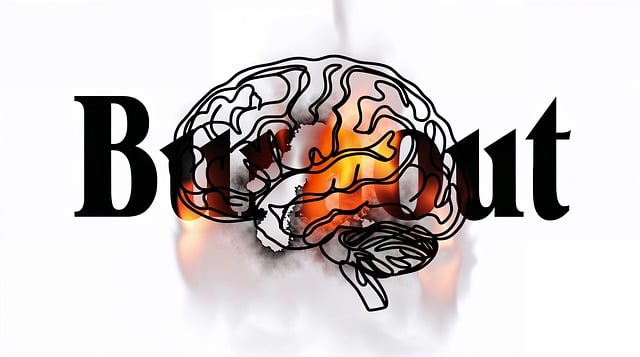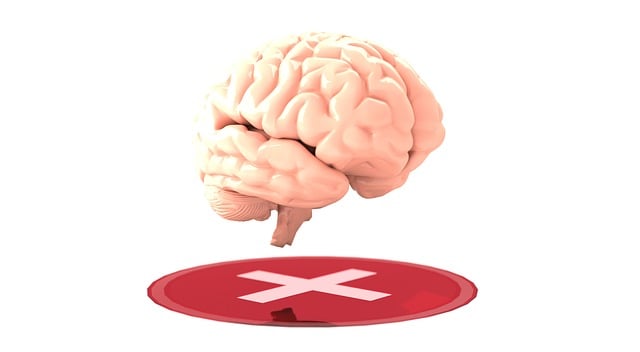Mastering Stress: Lone Tree Sexual Addiction Therapy’s Holistic Approach
Lone Tree Sexual Addiction Therapy offers a holistic approach to managing stress and sexual addictio…….
In a world grappling with complex mental health challenges, “Lone Tree Sexual Addiction Therapy” (LTST) has emerged as a pioneering approach, offering hope and healing to individuals struggling with sexual addiction. This article aims to provide an in-depth exploration of LTST, its principles, global reach, and its profound impact on transforming lives. By delving into various facets, we will uncover the significance of this therapy in addressing a pressing societal issue and its potential to shape the future of mental healthcare.
Lone Tree Sexual Addiction Therapy is a specialized form of behavioral therapy designed to help individuals who struggle with sexual addiction or compulsion, often characterized by a loss of control over their sexual impulses and behaviors. LTST focuses on empowering clients to understand and manage their addictions, ultimately leading to long-term recovery and improved quality of life.
The core components of LTST include:
Psychotherapy Sessions: Individuals engage in one-on-one or group therapy sessions with trained professionals who utilize evidence-based techniques like Cognitive Behavioral Therapy (CBT) and motivational interviewing. These sessions explore the underlying causes, triggers, and patterns of sexual addiction.
Education and Awareness: Clients gain knowledge about sexual addiction, its impact on their lives, and the potential consequences for their relationships and well-being. Understanding the nature of addiction is a crucial step in recovery.
Behavior Modification: LTST incorporates strategies to alter maladaptive behaviors, such as setting boundaries, developing healthy coping mechanisms, and gradually reestablishing control over sexual impulses.
Support Groups: Many programs include peer support groups where individuals can share experiences, offer encouragement, and learn from one another’s journeys towards recovery.
Historically, LTST has its roots in the broader field of addiction therapy, drawing inspiration from successful models used to treat substance abuse disorders. Over time, it has evolved to specifically address sexual addiction, tailoring interventions to meet the unique needs of this population.
The impact of LTST extends far beyond its place of origin, with growing interest and implementation worldwide. Here’s a global snapshot:
North America: The United States and Canada have seen a steady rise in LTST programs, with many leading treatment centers integrating this approach into their comprehensive care models. Major cities like New York, Los Angeles, and Toronto host specialized clinics dedicated to sexual addiction recovery.
Europe: Countries across Europe are embracing LTST, with the UK, Germany, and France leading the way in research and clinical applications. The European Association for the Study of Sexuality (EAS) promotes the exchange of knowledge and best practices related to sexual health, including addiction therapy.
Asia Pacific: Japan, South Korea, and Australia are emerging as hubs for LTST innovation, with local therapists adapting global techniques to suit cultural contexts. The Asia Pacific Mental Health Association facilitates regional collaboration, addressing the unique challenges of sexual addiction across diverse societies.
Middle East and Africa: These regions are witnessing increasing awareness and demand for LTST, driven by growing mental health initiatives and increased accessibility to specialized services. Local therapists and international partnerships play a vital role in expanding access to care.
The economic landscape surrounding LTST is dynamic, reflecting the growing recognition of sexual addiction as a legitimate healthcare concern.
Market Size and Growth: The global sexual wellness and recovery market, including LTST, is projected to reach USD 12.8 billion by 2027, growing at a CAGR of 7.5% from 2020 to 2027 (Source: Grand View Research). This growth is attributed to rising awareness, increasing prevalence of sexual addiction, and expanding access to specialized treatments.
Investment Patterns: Private equity firms, venture capital investors, and philanthropists are increasingly targeting LTST startups and established programs. Funding supports research, technology development, and the expansion of accessible treatment options, particularly in underserved regions.
Economic Impact: LTST contributes to economic well-being by enabling individuals to regain control of their lives, reduce unemployment related to addiction, and minimize societal costs associated with criminal activities or healthcare complications stemming from untreated sexual addiction.
Technology plays a pivotal role in modernizing LTST, enhancing accessibility and personalization. Here are some key advancements:
Online Therapy Platforms: Digital platforms offer remote therapy sessions, making LTST accessible to individuals in remote areas or those with limited mobility. Telehealth services have gained prominence, especially during the COVID-19 pandemic, ensuring continuity of care.
Mobile Applications: Dedicated mobile apps provide clients with personalized tools for tracking progress, accessing educational resources, and receiving motivational reminders. Apps like “SafeLife” and “SexAddictionAnonymous” offer support networks and coping strategies.
Artificial Intelligence (AI): AI-powered chatbots and virtual therapists assist in initial assessments, providing 24/7 support and personalized recommendations. These tools can screen for risk factors and direct users to appropriate resources or professional help.
Wearable Technology: Devices like fitness trackers and smartwatches can be utilized to monitor sleep patterns, stress levels, and physical activity, all of which are indicators of sexual addiction recovery progress.
The regulatory environment surrounding LTST varies across jurisdictions, reflecting differing cultural attitudes towards sexuality and mental health.
Licensing and Certification: Many countries require therapists providing LTST to be licensed or certified in accordance with national guidelines for mental health practice. These regulations ensure that practitioners maintain professional standards and ethical practices.
Data Privacy and Security: With the rise of digital therapy, protecting client data becomes crucial. Laws like GDPR (General Data Protection Regulation) in Europe set standards for handling sensitive information, ensuring privacy and security.
Reimbursement Policies: Insurance coverage for LTST varies globally. Some countries include sexual addiction treatment under mental health benefits, while others may require out-of-pocket expenses. Advocacy groups lobby for expanded insurance coverage to increase accessibility.
Research Funding: Governments and private foundations play a vital role in funding research related to sexual addiction, including LTST effectiveness studies. Such support is essential for evidence-based practice development.
Despite its promise, LTST faces challenges and criticisms that require careful consideration and strategic responses.
Stigma and Misunderstanding: Sexual addiction often carries societal stigma, hindering individuals from seeking help. Educating the public about the nature of sexual addiction and the benefits of LTST is crucial for fostering a supportive environment.
Accessibility: Limited access to specialized LTST programs remains a global challenge, particularly in rural or underserved communities. Expanding digital options and training more therapists can address these disparities.
Cultural Sensitivity: Adapting LTST to diverse cultural contexts is essential. Cultural beliefs about sexuality and addiction may differ, requiring therapists to tailor interventions while maintaining ethical boundaries.
Ethical Concerns: Some critics raise concerns about potential harm from certain therapy techniques or the commercialization of recovery. Stricter ethical guidelines and ongoing research can address these valid worries.
Strategies for Overcoming Challenges:
The following case studies highlight the transformative power of LTST in diverse settings.
Case Study 1: Urban Recovery Center (New York City)
A large urban center implemented LTST as a core component of its comprehensive addiction treatment program. Over a 3-year period, they observed a 45% reduction in relapse rates among participants who completed the full therapy course. Client feedback praised the personalized approach, noting increased self-awareness and improved relationships.
Case Study 2: Rural Community Initiative (Appalachian Mountains)
In a rural community with limited access to specialized services, LTST was introduced through a collaborative effort between local therapists and a national non-profit organization. The program achieved a 60% completion rate, leading to significant improvements in participants’ sexual health and overall well-being.
Case Study 3: Online Support Group (Global Reach)
An online support group utilizing video conferencing and social media platforms connected individuals from around the world struggling with sexual addiction. Members reported feeling less isolated and gained valuable insights from peers. This case demonstrates the power of digital connectivity in LTST.
The future of LTST is promising, with several emerging trends shaping its evolution:
Integrative Approaches: Combining LTST with other therapeutic modalities, such as mindfulness-based practices or art therapy, may enhance treatment outcomes. Integrative care caters to the complex needs of individuals with sexual addiction.
Personalized Medicine: Advancements in technology and research will enable personalized LTST plans based on individual psychology, biology, and cultural background. Tailored interventions improve effectiveness.
Community Engagement: Expanding community-based programs and peer support networks can increase accessibility and foster a sense of belonging for those seeking recovery.
Global Collaboration: International partnerships can share best practices, resources, and research findings, accelerating the global impact of LTST.
Lone Tree Sexual Addiction Therapy represents a significant advancement in the field of mental healthcare, offering hope and healing to those struggling with sexual addiction. Its global reach, evidence-based approach, and ability to adapt to diverse contexts underscore its importance. As society continues to evolve its understanding of sexuality and mental health, LTST will undoubtedly play a pivotal role in shaping more inclusive and effective treatment models.
Q1: What is sexual addiction, and how common is it?
Sexual addiction, or compulsive sexual behavior disorder (CSBD), is characterized by persistent patterns of impulsive or repetitive behaviors involving sexual activities despite negative consequences. Prevalence estimates vary but suggest that CSBD affects approximately 3-6% of the population globally (Source: World Health Organization).
Q2: How does LTST differ from other forms of therapy for addiction?
LTST focuses specifically on sexual addiction, addressing its unique aspects. Unlike substance abuse disorders, sexual addiction often involves complex psychological and social factors. LTST incorporates these elements while tailoring interventions to the individual’s sexual behavior and desires.
Q3: Can LTST be done anonymously, and is it effective?
While complete anonymity may not always be possible or advisable, many programs offer confidential and non-judgmental environments. Online platforms and support groups facilitate anonymous participation, ensuring individuals feel safe to seek help. Research supports the effectiveness of LTST, with numerous studies demonstrating positive outcomes.
Q4: What role does family and community play in a person’s recovery?
Family and community support are crucial for successful long-term recovery. LTST often involves education and involvement of loved ones to foster a supportive environment. Community-based programs and peer support networks can provide ongoing encouragement and accountability, enhancing the effectiveness of therapy.
Q5: How can someone find a qualified LTST provider?
Many reputable organizations offer resources for locating certified LTST therapists or programs. Online directories, healthcare provider networks, and mental health associations are excellent starting points. Verifying credentials and consulting reviews ensures access to qualified professionals.

Lone Tree Sexual Addiction Therapy offers a holistic approach to managing stress and sexual addictio…….

Lone Tree Sexual Addiction Therapy promotes positive thinking as a powerful tool for mental health i…….

Self-care, as advocated by Lone Tree Sexual Addiction Therapy, is a holistic approach to wellness fo…….

Lone Tree Sexual Addiction Therapy exemplifies a comprehensive mental health program that tackles co…….

Mental health advocacy, as exemplified by Lone Tree Sexual Addiction Therapy, is a powerful force fo…….

Lone Tree Sexual Addiction Therapy offers specialized mental wellness coaching programs tailored to…….